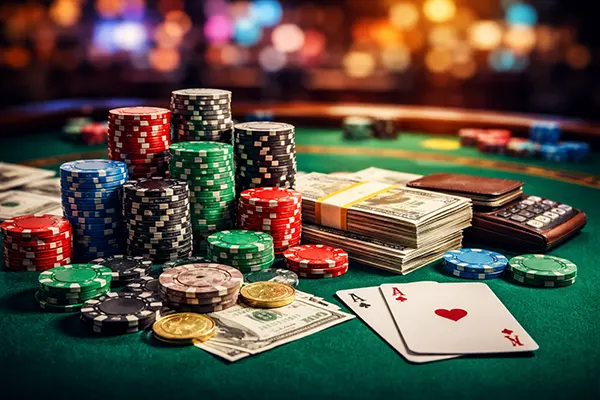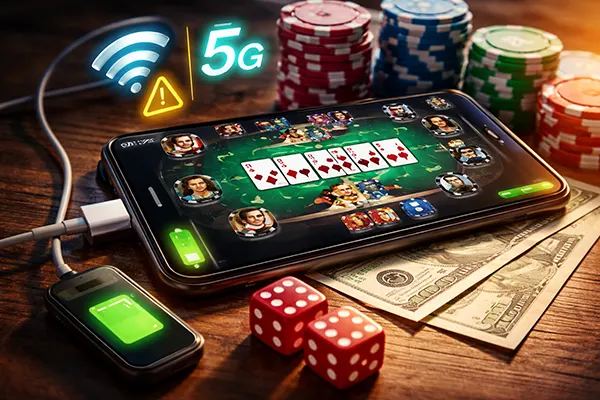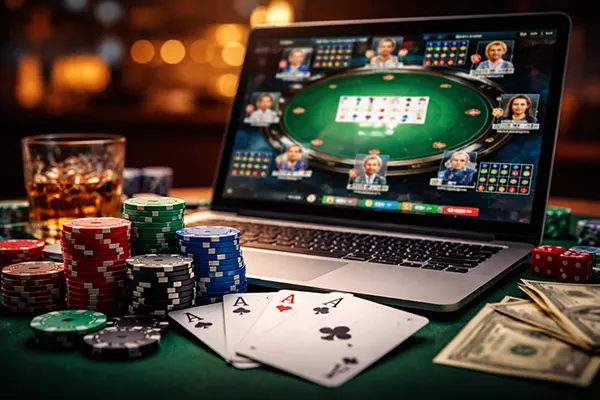How to Train for Sports Poker Tournaments
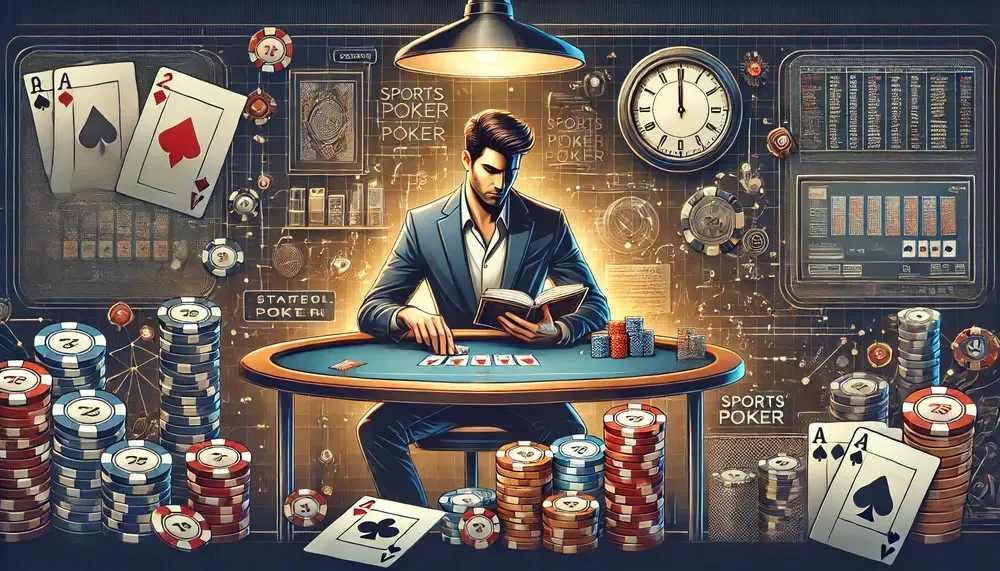
Poker tournaments are intense, competitive events that require more than just luck; they demand sharp skills, mental focus, and a well-developed strategy. Whether you are a seasoned player or a newcomer looking to enter the competitive scene, proper training is essential for success. In sports poker tournaments, where large sums are at stake, every decision matters. Training not only helps you improve your game but also prepares you mentally and physically for the pressure of the tournament environment.
1. Strategy Development: How to Choose the Right Approach?
The foundation of any successful poker player is a solid strategy. In sports poker tournaments, your strategy must evolve beyond the basics of hand rankings and bluffing. To be competitive, you need to develop a strategy that fits your personal style of play, the structure of the tournament, and the tendencies of your opponents.
Start by understanding the dynamics of tournament play, which differs from cash games. In tournaments, the goal is not just to win individual pots but to accumulate chips consistently and build a stack that can withstand the various stages of the tournament. A balanced approach, involving aggressive plays during the right moments and a conservative stance when necessary, is key.
Study different poker variants that might be included in tournaments, such as Texas Hold’em, Omaha, and Seven-Card Stud. Each requires a unique strategic mindset. Learning to adjust your approach based on the tournament format can make a huge difference in your overall performance.
2. Practice and Simulations: Using Practice Platforms
The best way to refine your strategy and improve your skills is through regular practice. Online platforms provide an excellent opportunity for poker players to simulate tournament conditions. One of the best ways to train is by using practice platforms that allow you to play against others and learn through experience.
For instance, you can practice at Spillehallen, an online casino offering a wide range of poker games. By playing on Spillehallen, you get to experience a variety of scenarios and improve your decision-making process. Plus, Spillehallen often provides players with exciting opportunities to earn bonuses. The Spillehallen bonus can be used to practice poker with added funds, which can be invaluable when fine-tuning your skills.
3. Analyse Your Games: How Can You Evaluate and Improve Your Mistakes?
Reviewing your performance after each session is a crucial part of improvement. In sports poker tournaments, making even a small mistake can lead to elimination, so it is important to analyse each decision you make and learn from your mistakes.
Use hand history review tools available on online platforms, or simply go back through your games manually. Ask yourself key questions: Did I make the right move? Was my timing off? Could I have read my opponent better? By evaluating your gameplay critically, you will begin to identify patterns in your decision-making, which will help you avoid similar mistakes in future tournaments.
Consider discussing your plays with more experienced players, as their feedback can provide valuable insights into areas where you might be lacking. Always aim to learn from every session, whether it’s a win or a loss.
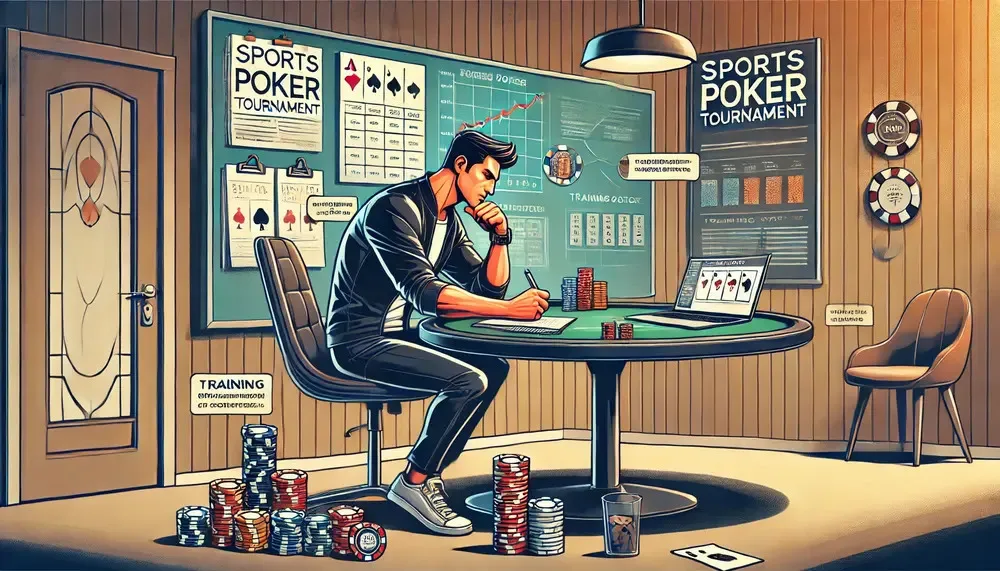
4. Poker Psychology: How Do I Prepare for the Stress of a Tournament?
The psychological aspect of poker is as important as the strategic one. Poker tournaments, especially those at a professional level, can be extremely stressful. The pressure of the clock, the uncertainty of opponents’ moves, and the potential for big losses can all take a toll on your mindset.
Mental preparation begins long before you sit at the table. Developing emotional control is essential to stay focused, no matter what happens. Avoid letting bad beats or bad hands affect your mindset. A strong poker player maintains a balanced emotional state, even under pressure. Mindfulness techniques, deep breathing exercises, or visualization can help you stay calm and make rational decisions when things get tough.
Another aspect of poker psychology is the ability to read opponents’ behavior. Understanding psychological tells and patterns can give you a huge advantage. Observe how players react under pressure and use that information to predict their moves.
5. Physical Fitness: The Impact of Health on Poker Play
While poker may seem like a game of the mind, physical fitness plays a critical role in your ability to maintain focus and stamina throughout a tournament. Tournaments can last for hours, and staying sharp physically can help you avoid mental fatigue.
A healthy body supports a healthy mind. Regular exercise can improve circulation, boost cognitive function, and increase your endurance during long sessions. Consider incorporating cardio exercises, stretching, or yoga into your routine. Eating well-balanced meals and staying hydrated also play an important role in maintaining optimal brain function during a tournament.
Good physical health can help you keep your energy levels up, prevent distractions, and ensure that you remain mentally agile, no matter how long the tournament goes on.
6. Preparing for Tournaments: How to Create the Mental Attitude to Win?
Winning a sports poker tournament requires more than just skill—it requires a winning mindset. You must prepare yourself mentally for the challenges you will face, including the inevitable ups and downs of tournament play.
Before entering a tournament, visualize yourself succeeding. Focus on your goals, remind yourself of your strengths, and build confidence in your abilities. Having a positive, focused mental attitude will help you cope with setbacks and stay on track toward success.
Remember that poker is as much about resilience as it is about winning. Developing the mental toughness to withstand the pressure and stay focused will give you the edge over opponents who may crumble under the stress.
Training for sports poker tournaments is a multifaceted process that combines strategy, practice, mental toughness, and physical fitness. By developing a solid approach, simulating tournament conditions, analysing your games, preparing mentally, and staying physically fit, you’ll increase your chances of success. Use practice platforms like Spillehallen to hone your skills and take advantage of bonuses like the Spillehallen bonus to maximize your training opportunities. With dedication and focus, you can sharpen your skills and become a formidable player at the poker table.

